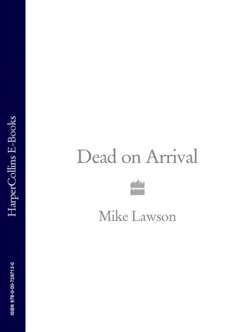Читать книгу Dead on Arrival - Mike Lawson - Страница 17
Оглавление13
He stood in an alley where he could see the apartment in which the boy lived. This neighborhood in Cleveland was filled mostly with brown and black people so he blended in, and at this time of day the few people he saw were hurrying off to work and didn’t even seem to notice him. He had arrived at six, though he hadn’t expected the boy to leave that early, but it was almost eight now, so he should be coming out soon.
It was odd, but his leg hurt less when he stood. He didn’t know why but he could stand for hours, yet as soon as he sat or reclined on a bed the pain would come. The doctors had said it had something to do with the way the stump had healed, something about his circulation. It was particularly bad at night, and when he ran out of pills he couldn’t sleep for more than an hour at a time. He was addicted to the pills by now, but that was a minor problem.
He had lost his lower leg in Afghanistan. He didn’t know if the mine was Russian left over from the eighties or American from the war in which he had fought. It didn’t matter. It was an enemy mine and it had killed his best friend, and another man he didn’t know, and blown off his leg below the knee.
The doctors said he was lucky that he lost his leg below the knee instead of above it. They said it was much more difficult to learn to walk when the amputation was above the joint. And then they gave him a good French prosthesis, very light, very durable. He couldn’t run on it but he could walk and stand and do what he must do. And in a way, he had been lucky to lose his leg. It was the amputation that had brought him to Sheikh Osama’s attention – or, to be accurate, it was the fact that he didn’t go home after he lost his leg that brought him to the sheikh’s attention.
Like Osama bin Laden, he was from Arabia. He went to Afghanistan when the Americans had invaded to slaughter the Taliban, and he went there for the same reason that other Saudis did: to serve, to sacrifice, to kill – and, if necessary, to die. Like Sheikh Osama, he was well educated – he spoke English and French and some German – and he came from a wealthy family. He didn’t have to go to Afghanistan. He could have stayed in Arabia, done nothing, said nothing, and lived in the lap of luxury like the corrupt royal princes. And he could have returned to Arabia when he lost his leg; his father, after a suitable period of sulking, would have taken him in. But he didn’t go back.
Instead, after his leg had healed and he could walk again, he went into the mountains near the Pakistan border to find Sheikh Osama. He never did find him, of course – he had been naive and arrogant to think that he could – but Osama somehow, some way, had found him. He was taken blindfolded to the house where Osama was staying that night – he’d be in a different house or tent or cave the next night – and he had tea with him. He had been shocked at how weak the sheikh had looked and he couldn’t help but wonder if he was still alive today, though he would never have said this aloud. He was with him for only an hour, but in that hour Sheikh Osama saw the depths of his belief, the fire of faith blazing in his soul. Osama told him what he must do next, then embraced him, and when Osama’s cheek touched his, he was surprised by how hot the man’s skin was. He could still feel that burning cheek next to his own. He would feel it for the rest of his life.
Following the meeting with Sheikh Osama, he made his way out of Pakistan and made contact with another Saudi, a man not much older than himself, a man who might one day be the next Osama. This man provided money and passports and equipment and helped him cross borders. They hadn’t spoken face-to-face in three years, not since London, but this man, thousands of miles away, was still helping him. He was the one who had given him the name of the couple in Philadelphia that had hidden him for two months, and he was the one who would make sure the couple never talked about him.
Ah, finally, there he was! The boy stood for a long time on the stoop of his building, as if he was reluctant to go wherever he was going. He was holding two or three books in his right hand. The papers had said the boy was fourteen but he looked younger, much younger. And he was small, maybe five-foot-two, less than a hundred pounds. But the boy’s size was irrelevant, as was his age. He had worked with martyrs who were as young as nine. All he hoped for was that the boy was ready. That his hatred had made him ready.
